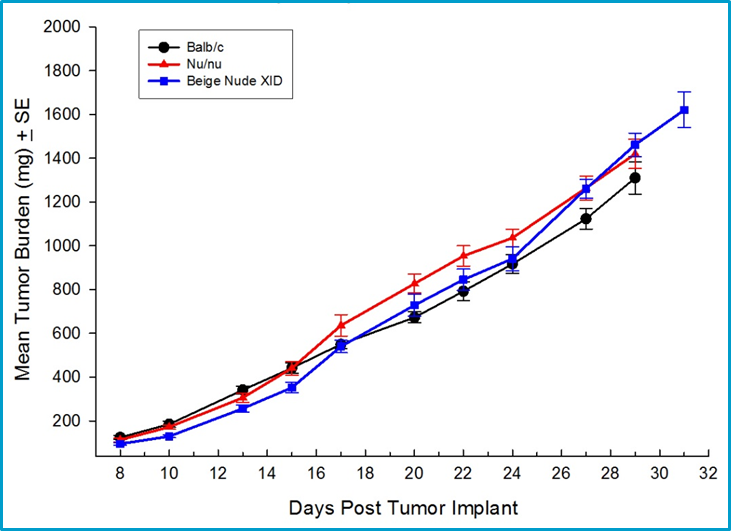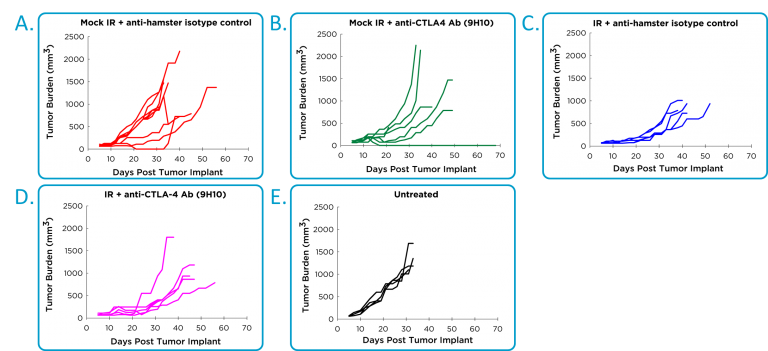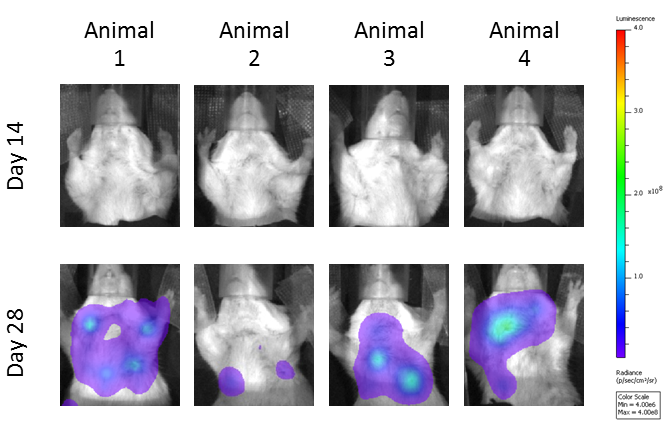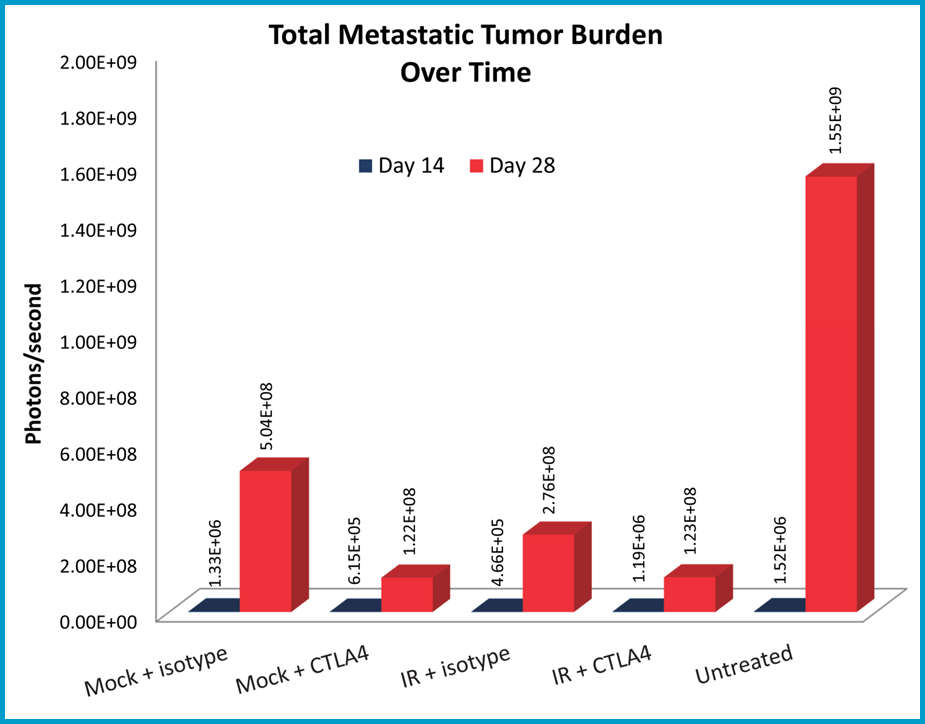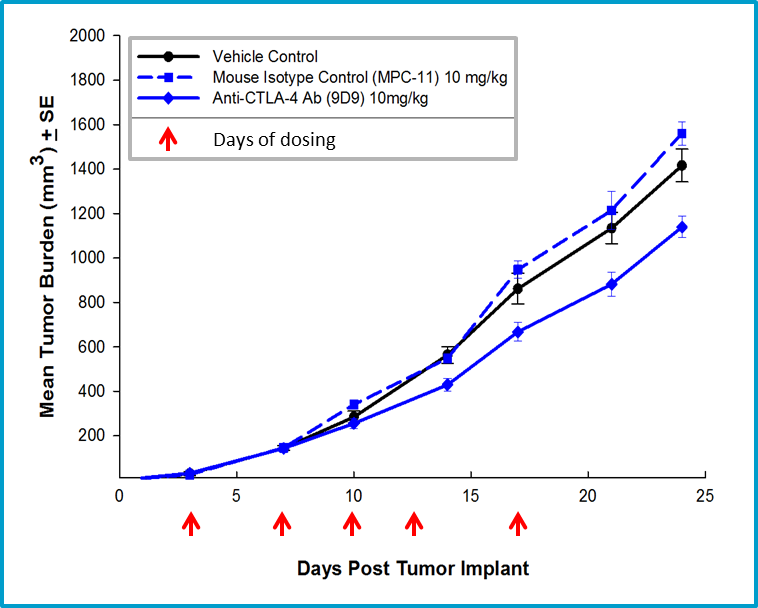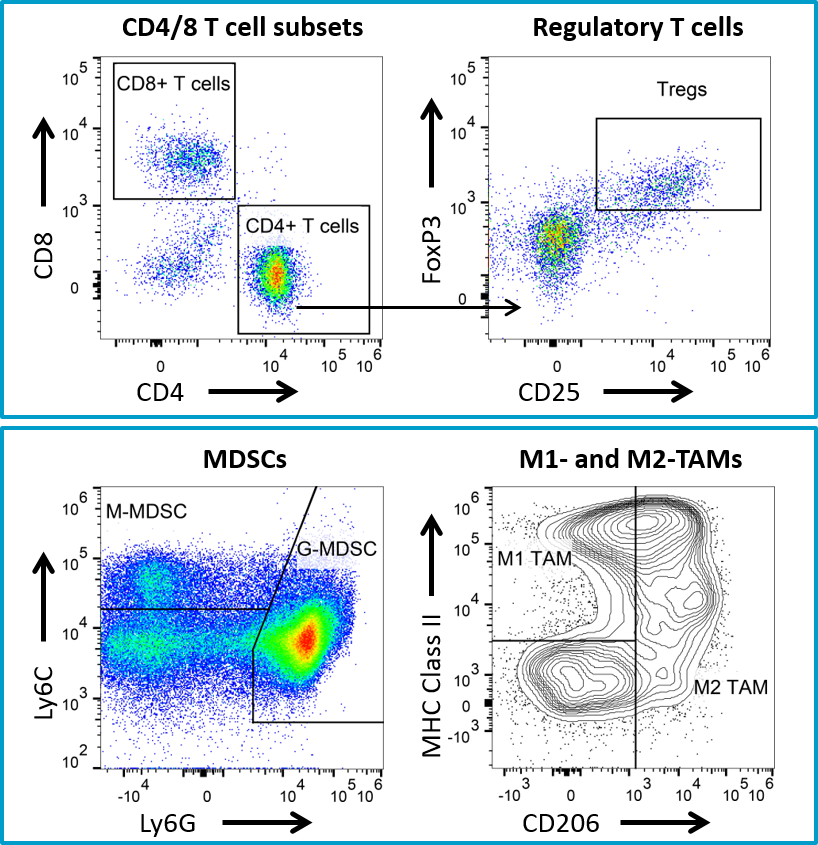Breast cancer is the second most deadly malignancy after lung cancer in woman in the United States, with an estimated 246,000 new cases and 40,450 deaths expected in 2016. Many treatment options for breast cancer exist including surgery, radiotherapy, anti-estrogen therapy, targeted therapies (e.g., trastuzumab), and chemotherapy. Despite these therapeutic advances, metastatic disease remains a significant source of mortality. Immunotherapy has seen remarkable progress in the last five years with four T cell immune checkpoint inhibitors approved. While none of these checkpoint inhibitors are approved in breast cancer, there are currently 60+ clinical trials ongoing in breast cancer with checkpoint inhibitors against PD-1 or PD-L1 and 20+ clinical trials ongoing with CTLA-4 inhibitors.
Because checkpoint inhibitors and other classes of immunotherapies require an intact immune system to elicit activity, syngeneic mouse models of mammary cancer are an important option for preclinical testing of novel agents. Labcorp has fully characterized the 4T1-luc2 mammary carcinoma model derived from Balb/c mice as an orthotopic model to support studies with novel immuno-oncology agents. Orthotopic 4T1-luc2 tumors metastasize to lymph nodes and the lungs making it a valuable model to study the effect of therapies on both primary tumor and metastatic disease using bioluminescence imaging. The growth of 4T1-luc2 tumors is equivalent in immune-deficient strains and immuno-competent Balb/c mice which suggests 4T1-luc2 is a weakly immunogenic tumor (Figure 1).



